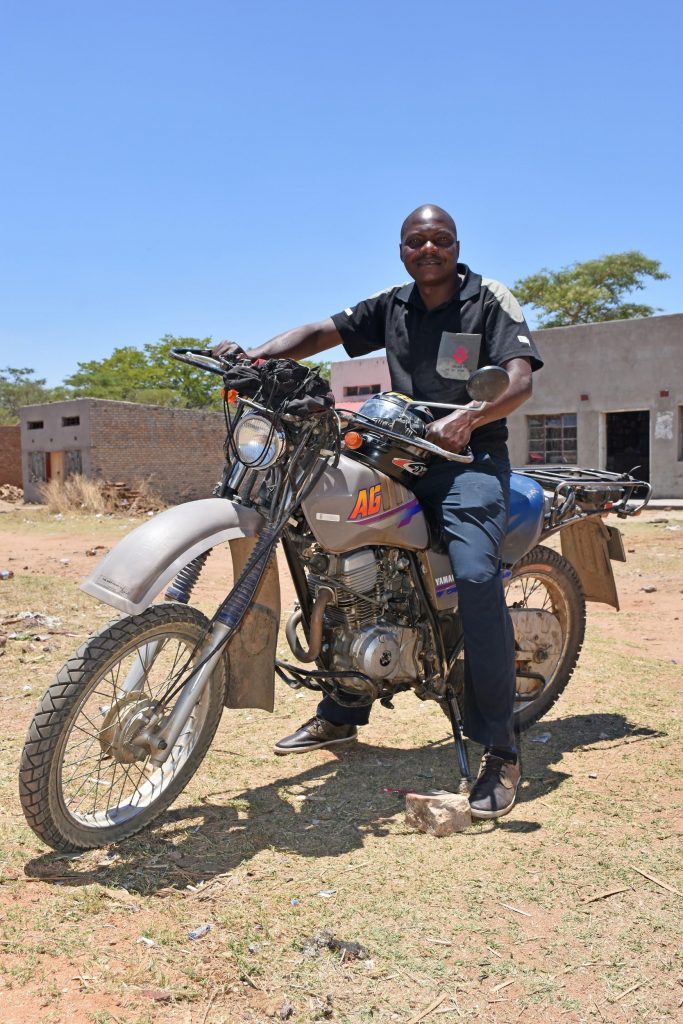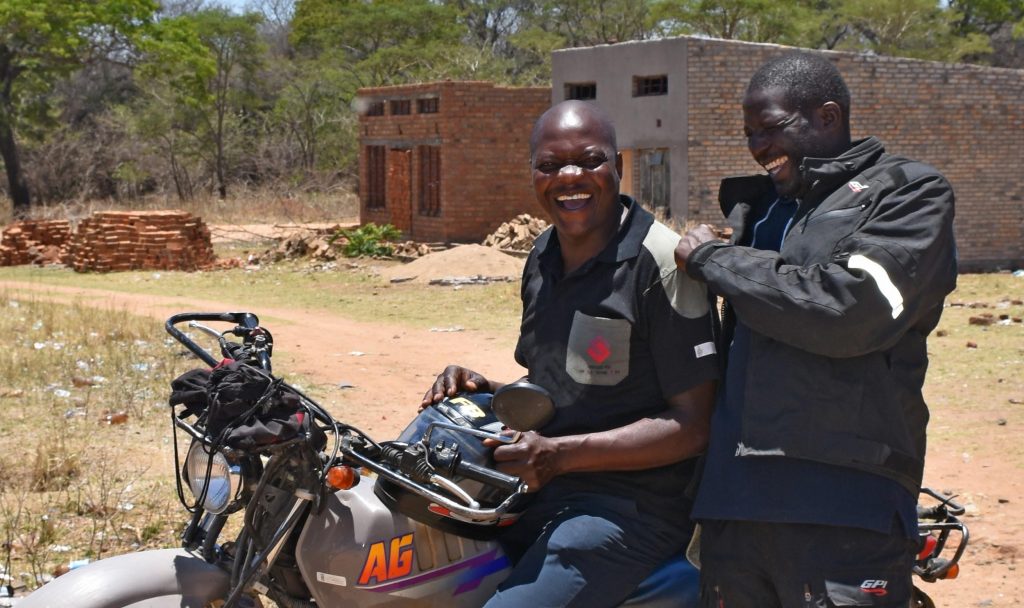Before the sun rises over the granite mountains, Justice Murisa zooms over the district’s dirt roads, his red motorcycle kicking-up dust. He is flanked by other motorcyclists, each one equipped with a megaphone. They are charged with going door-to-door to tell families that tomorrow the operators will come to spray their homes with insecticide to kill mosquitos.
Here in Zimbabwe, these motorcyclists are called “warners.” In other countries, they may be called community mobilizers or sensitizers.
Justice is 1 of 11 warners working on the 2018 indoor residual spray (IRS) campaign in the Mutoko District of the Mashonaland East Province. During the 2018 spray season, the U.S. President’s Malaria Initiative through the PMI VectorLink project supported IRS operations in Mutoko as well as the neighbouring district of Mudzi on the border with Mozambique. The target was to spray 125,068 structures — 64,111 in Mutoko — to protect 271,608 people from malaria.
Motorcycles are important tools in the rural landscape. Justice and his colleagues went through a two-week training called Riders for Health which prepared them to take care of vehicles and ride them in different conditions.
Justice enjoys the thrill of moving around different terrain, even though it sometimes means leaving the IRS camp at 4 a.m. and riding 150 kilometers.
Many folks in Mutoko are farmers, so Justice and the other warners must ride out early to catch homeowners before they head out to tend their maize, cotton, tobacco, and beans. Otherwise, they won’t know to prepare their home and be present the next day to consent to the spray.
At each homestead, Justice spends anywhere between 3 to 10 minutes with the family discussing the upcoming spray process. Primarily, he reminds the families to empty their homes completely and have sufficient water so that the operators can dilute the chemical.
For a space to be sprayed with insecticide to protect them from mosquitos, almost everything has to be removed. Families may be reluctant to pull all of their possessions out into the yard. Justice answers questions and explains the benefits of the spray, adapting his message for each person’s level of education and understanding of malaria prevention. “You become like elastic,” he says. “You have to stretch to meet their level.” The WHO operations manual requires that the warners convey the information simply with few technical terms.
Homesteads in Mutoko are made up of several small buildings, but only structures where people sleep will be sprayed. Justice says he will walk through a homestead and help people identify which spaces to prepare for the next day. They make the ultimate decision, but he empowers them with the information.
Warners also participate in “call-backs,” which is what happens after the operators were not able to spray somewhere, usually due to funerals, community meetings, rain, or locked structures. The warners revisit the area and work with village health workers to mobilize the households before the operators return. Call-backs help reach the goal of 85% spray coverage.
This is Justice’s first time working on an IRS campaign, but over the past five years, he has supported water and sanitation, tuberculosis, cholera, and more. In order to join the environmental health department, he retired from the military and now enjoys touching people’s lives and working in his own community.
Justice describes himself as an “artist by nature,” and he uses that in his community health education work. “Doing warning is something that is ingrained in me,” says Justice. “And poetry aspect enhances my presentation.”
For instance, he wrote a song that he says promotes the “joys and benefits” of voluntary medical male circumcision. He sings in Shona about preventing HIV and cervical cancer to a tune that sounds like the popular Mexican song “La Bamba.” He plays the guitar and the mbira, a traditional African thumb piano.
He finds that songs are an easier way to convey messages to audience. After this first season warning for IRS, there are many songs he hopes to write to encourage people to have their home sprayed.



